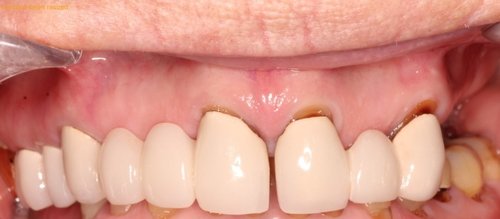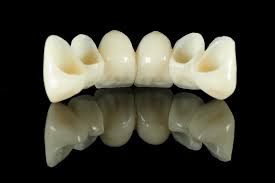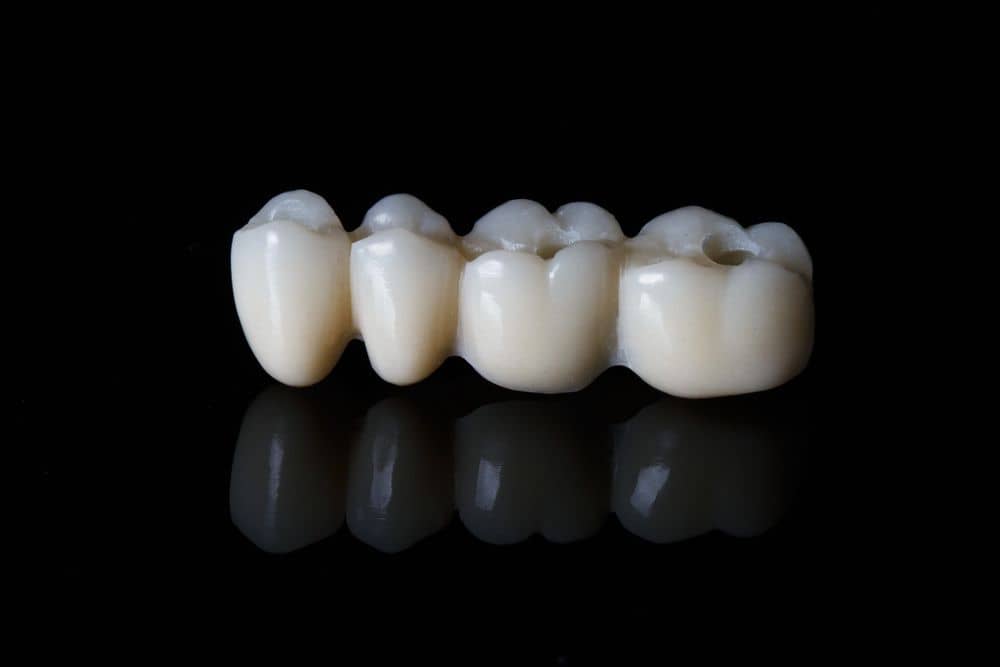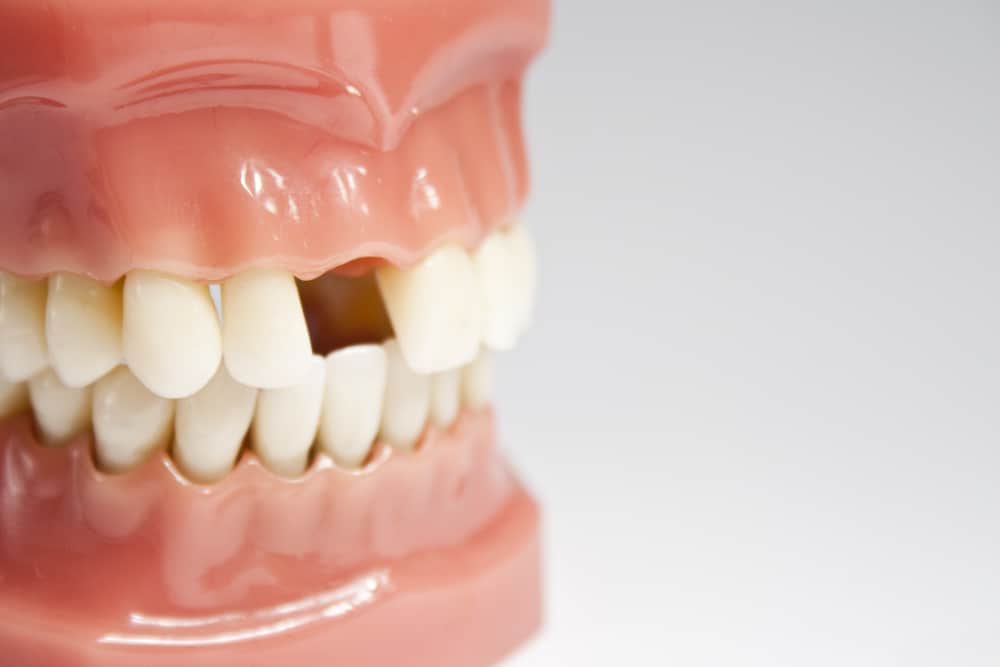Imagine being able to smile and chew with confidence again. Dentures are a remarkable innovation that allows people who are missing teeth to regain these essential functions. Whether due to age, dental issues, or injury, dentures provide a comfortable and natural-looking solution.
However, achieving complete comfort can sometimes be challenging for denture wearers. That’s where soft liners come into play. These innovative materials act like a soft cushion between your dentures and gums, enhancing comfort and making the experience of using dentures more enjoyable.
Contents
- 1 What are Soft Liners for Dentures?
- 2 Procedure to apply Soft Liner
- 3 Benefits of Soft Liners for Dentures
- 4 Who Can Benefit Most from Soft Liners for Dentures?
- 5 Types of Soft Liners for Dentures
- 6 Temporary vs. Permanent Soft Liners for Dentures
- 7 Permanent Soft Liners for Dentures
- 8 Soft Liners for Upper Dentures
- 9 Soft Liners for Lower Dentures
- 10 How much do soft liners for dentures cost?
- 11 Caring for Soft Liners for Dentures
- 12 Do-It-Yourself Soft Liners for Dentures
- 13 FAQs
- 14 Conclusion
What are Soft Liners for Dentures?
Think of soft liners as cozy socks for your dentures! They are thin layers of soft, flexible material applied to the inner surface of your dentures that rest against your gums. These liners are primarily made from two materials:
Silicone: A popular choice because it’s comfortable, durable, and resists staining.
Hydrogel: This material provides a very soft and cushioning feel, ideal for those with sensitive gums.

Procedure to apply Soft Liner
The application of soft liners is a relatively simple process managed by our dental team. The process involves:
Denture Evaluation
Your dentist will start by inspecting your dentures thoroughly. This step is crucial to ensure that they are in good shape and properly fit your mouth, which is essential for the successful application of a soft liner.
Liner Selection
During this phase, you’ll explore various soft liner options with your dentist. Based on an assessment of your individual needs and preferences, your dentist will recommend the most suitable material for your dentures.
Impression Taking
If necessary, your dentist might take an impression of your gums. This impression is used to craft a soft liner that fits your dentures precisely, ensuring maximum comfort and effectiveness.
Liner Application
The selected soft liner material will be meticulously applied to the inner surface of your dentures. This step involves precision to ensure the liner adheres well and functions as intended.
Fitting and Adjustments
After applying the soft liner, your dentist will place the dentures back in your mouth to check the fit. Any necessary adjustments will be made at this time to ensure that the dentures are comfortable and secure, providing you with optimal functionality and comfort.
Benefits of Soft Liners for Dentures
Soft liners offer a revolutionary solution that can transform your denture experience. Here are some ways soft liners can significantly improve your quality of life:
Unmatched Comfort and Fit
Soft liners act like a cushion between your dentures and gums, eliminating pressure points and ensuring a snug, comfortable fit throughout the day. This improves denture stability, reducing worries about slipping or shifting while speaking, eating, or laughing.
Reduced Pain and Irritation
For those with sore or sensitive gums, soft liners are a game-changer. The gentle cushioning material alleviates discomfort and irritation caused by the friction between the dentures and gums. This allows you to enjoy your favorite foods and activities pain-free.
Enhanced Chewing Ability
A secure and comfortable fit with soft liners allows you to chew with greater confidence. Improved chewing efficiency can lead to better digestion and a more balanced diet, promoting overall health.
Increased Confidence
Imagine smiling and speaking freely without worrying about your dentures slipping. Soft liners boost your confidence by ensuring a secure fit and a natural, comfortable feel. This newfound confidence allows you to fully participate in social interactions and enjoy a more fulfilling life.
Protection for Gums and Underlying Tissues
The gentle cushioning effect of soft liners protects your gums from irritation and pressure. This can help slow down bone loss in the jaw, which is crucial for maintaining long-term denture stability.
Who Can Benefit Most from Soft Liners for Dentures?
Soft liners aren’t a one-size-fits-all solution, but they can significantly improve the denture experience for many wearers. Here’s a list who can be most benefitted from soft liners for dntures:
Sore Gums and Irritation: If you experience discomfort or irritation from your dentures rubbing against your gums, soft liners offer welcome relief. The cushioning material acts as a gentle barrier, reducing friction and alleviating pain.
Dry Mouth: Dry mouth conditions can make dentures feel uncomfortable and unstable. Soft liners, particularly those made from hydrogel, provide extra moisture retention, creating a more comfortable and secure fit.
Bone Loss in the Jaw: Bone loss in the jaw is a natural consequence of tooth loss. This can lead to loose-fitting dentures. Soft liners can help compensate for these changes by creating a tighter, more secure fit.
Loose-Fitting Dentures: Loose dentures can be embarrassing and frustrating. Soft liners can improve the fit of your dentures, reducing slipping and enhancing stability while you speak, eat, and smile.
Types of Soft Liners for Dentures
Choosing the right soft liner depends on your specific needs and preferences. Here’s a table summarizing the two main categories to help you discuss options with your dentist:
| Feature | Chairside Liners (Professional Application) | Home Application Liners |
| Application | Applied by your dentist during an appointment | Available over-the-counter, self-applied |
| Fit | Custom-fitted for optimal comfort and stability | May require adjustments for a good fit |
| Durability | Long-lasting | May require more frequent replacements |
| Cost | Typically more expensive | Potentially more affordable |
| Ideal for | Complex denture needs, long-term comfort (search for “[long-lasting soft liners for dentures]”) | Convenience, budget-conscious users |
Temporary vs. Permanent Soft Liners for Dentures
This table compares temporary and permanent soft liners for dentures to help you choose the right option:
| Feature | Temporary Soft Liners | Permanent Soft Liners |
| Material | Typically silicone or hydrogel | May use similar materials (silicone, hydrogel) with potential added durability features |
| Application | Applied by dentist during an appointment | May be applied by dentist or require self-application depending on product |
| Durability | Last for several months to a year | Advertised as long-lasting, potentially lasting several years |
| Fit | Can be custom-fitted for optimal comfort | May require adjustments for a good fit, especially with self-application |
| Cost | Typically less expensive | May be more expensive due to potentially longer lifespan |
| Availability | Widely available | Less common, may require specific brand or dentist offering |
Permanent Soft Liners for Dentures
One potential example of a permanent soft liner material is a product called SUPER-SOFT™, a heat-processed permanent soft denture reliner material from GC America. It’s designed for use with both new and old dentures and is touted as long-lasting.
However, traditional soft liner materials like silicone and hydrogel might also be adapted for more permanent applications in permanent liners.
Additionally, permanent soft liners might include additives like zinc undecylenate, which has antiseptic and antifungal properties. This could potentially enhance the liner’s durability and hygiene.
Soft Liners for Upper Dentures
Upper dentures cover a larger and more complex surface area compared to lower dentures. This presents some unique challenges that soft liners can particularly well address:
Reduced Pressure on the Palate
The upper denture rests on the palate, a bony area with minimal padding. Soft liners provide a crucial layer of cushioning, significantly reducing pressure and potential discomfort in this sensitive area.
Improved Fit Around Bumps and Ridges
The upper jaw can have bony bumps and ridges. Soft liners, unlike rigid denture materials, can conform to these contours, creating a more precise and comfortable fit around these bony areas.
Enhanced Speech Clarity
Ill-fitting upper dentures can sometimes affect speech. Soft liners, by creating a tighter seal and reducing movement, can contribute to clearer and more natural-sounding speech.
Overall, soft liners offer several special benefits for upper dentures by addressing the unique challenges associated with this larger and more intricate surface area.
Soft Liners for Lower Dentures
While soft liners provide general benefits for both upper and lower dentures, there is one unique feature that might be particularly advantageous for lower dentures:
Improved Retention and Stability
The lower jawbone is generally less bony and denser compared to the upper jaw. This can sometimes lead to challenges in achieving a secure fit with lower dentures. Soft liners, with their inherent flexibility and ability to conform to the contours of the gums, can create a tighter seal for lower dentures. This enhanced fit can significantly improve retention and stability, reducing the risk of slipping or dislodgement, especially during activities like talking, eating, or laughing.
This unique feature is particularly valuable for lower dentures because a loose or shifting lower denture can be more noticeable and disruptive than an upper one. Soft liners can help address this concern and provide greater confidence and peace of mind when using lower dentures.
How much do soft liners for dentures cost?
Soft liners for dentures are favored for their comfort, particularly for those with sensitive gums. They provide a cushion between the denture and the gums, which helps alleviate discomfort. In the U.S., the cost for soft liners generally ranges from $200 to $500. These costs can vary based on several factors including the dental office’s fees, the geographic location, and whether the dentures are full or partial. Soft liners typically need to be replaced more frequently than hard liners due to their softer material which is prone to quicker wear and tear.
In India, the cost for denture services can be quite broad, ranging from ₹5,000 to ₹15,000. This variance largely depends on the type of denture, the material used, and the specific dental service provider. The wide range can accommodate various options from basic to more advanced treatments.
Caring for Soft Liners for Dentures

Cleaning Soft Liners: Think gentle! Avoid harsh soaps, toothpaste, or abrasive brushes that can damage the soft material.
Rinse Often: After meals, rinse your dentures with cool water to remove food particles.
Daily Cleaning: Use a soft-bristled denture brush and a mild denture cleanser to gently clean your dentures and the soft liner.
Focus on the Details: Pay particular attention to the areas where the soft liner meets the denture base, as food particles can accumulate there.
Soak Selectively: While traditional dentures benefit from soaking, avoid soaking dentures with soft liners as prolonged moisture exposure can damage them.
Consistent cleaning and following your dentist’s replacement recommendations will ensure your soft liners continue to provide optimal comfort and support for your dentures.
Do-It-Yourself Soft Liners for Dentures
It’s important to prioritize safety and effectiveness when dealing with dentures. While there might be online suggestions for DIY soft liners using household materials, I strongly advise against them. Here’s why:
Improper Fit: DIY solutions might not create a secure and comfortable fit, potentially leading to irritation, sores, and difficulty chewing.
Unsuitable Materials: Household materials may not be appropriate for use in the mouth. They can harbor bacteria, be abrasive to gums, or even break down over time, posing health risks.
Ineffectiveness: DIY solutions might not offer the intended benefits of soft liners, such as improved comfort and stability.
Safe and Effective Alternatives
Consult Our Dental Experts: We will recommend commercially available soft liners, either chairside or home application options, based on your needs and budget. Chairside liners offer a custom fit for optimal comfort and stability.
Our dental team is the best resource for ensuring optimal denture care and comfort. DIY approaches can be risky and potentially compromise your oral health. Explore commercially available soft liner options with our dental team to find the solution that best suits your comfort and budget needs.
FAQs
What does a soft liner for dentures look like?
Imagine invisible dental floss! Soft liners for dentures are incredibly thin and transparent, designed to blend in seamlessly. They’re typically no thicker than a millimeter and feel quite flexible. This thinness allows them to conform to your gum contours without adding bulk to your dentures.
Color: Think “barely there.” Most soft liners are clear or a very light pink to mimic the natural color of your gums. Some home application liners might offer a slightly opaque shade for aesthetics, but generally, they aim for invisibility.
Texture: While most soft liners are smooth, a unique variation is textured liners. These have a microscopic textured surface with tiny raised areas. Whether you choose a smooth or textured soft liner depends on your specific needs and dentist’s recommendation. Both offer valuable comfort and stability improvements for denture wearers.
Can you soak dentures with a soft liner?
Hold off on the soak! Soft liners are delicate, and soaking dentures with them can damage the material.
Instead rinse your dentures with water and clean them with a soft brush and denture cleanser. Also, store your dentures in a cool, moist container when not in use.
Soft liner for immediate dentures
Soft liners for immediate dentures act as temporary comfort aids. They cushion recently extracted gum sites, minimizing irritation and pressure during the initial healing phase. They’re typically softer and may require more frequent replacement (3-6 months) due to potential breakdown from constant wear.
Softer Material: Immediate denture soft liners are often formulated with extra softness compared to regular denture liners. This is crucial because the gums are particularly sensitive and inflamed right after tooth extraction. A softer material minimizes pressure and irritation, promoting healing and easing the initial discomfort associated with immediate dentures.
Tailored Thickness: Dentists might choose a slightly thicker soft liner for immediate dentures compared to regular ones. This additional thickness provides extra cushioning and support for the healing gums, especially during the crucial initial weeks when the gums are most vulnerable.
The softer material and potentially increased thickness create a more forgiving and comfortable environment for the healing tissues while you adjust to your immediate dentures
What are permanent soft liners?
While “permanent” may be a bit of an overstatement, there are indeed long-lasting soft liners for dentures available! These liners, typically applied by a dentist, are designed to be durable and can last for several years. They utilize heat or light curing processes to create a strong bond with your dentures, offering advantages over some home application liners, which might require more frequent replacement. However, even these durable liners will eventually need to be replaced due to wear and tear or changes in your gum structure.
How long do denture soft liners last?
Soft liners for dentures are categorized into temporary and permanent types, each designed for specific needs and durability:
- Temporary Soft Liners: These are often used as a transitional solution to help the gums heal from the irritation caused by new or existing dentures. Typically, temporary soft liners are meant to last for a few months. They are ideal during the adjustment period following new denture placement or after significant adjustments to an existing denture. Their primary function is to provide relief and cushioning while the underlying tissues recover and adapt.
- Permanent Soft Liners: Made to offer long-term comfort, permanent soft liners are a great choice for individuals with chronic gum sensitivity or those who have thinner, more fragile gum tissues that require extra cushioning. These liners are more durable and are designed to last several years—usually between one to two years—depending on factors like oral hygiene, the wearer’s diet, and how well the liners are maintained.
Are soft liners good for dentures?
Yes, soft liners can significantly improve the experience of wearing dentures! They provide several benefits:
Reduce irritation: Acting like a soft cushion, they absorb pressure points for a more comfortable fit.
Boost comfort: They prevent the dentures from rubbing against your gums, making it more comfortable to wear them throughout the day.
Improve stability: Similar to anti-slip soles, they create a tighter seal which helps to reduce slipping.
How thick is a soft liner for dentures?
Soft liners are exceptionally thin, typically ranging from about half a millimeter to one millimeter in thickness. This minimal thickness allows them to mold to the contours of your gums without adding bulk or feeling uncomfortable in your mouth. For immediate dentures, dentists might opt for a slightly thicker liner (up to 2mm) to provide extra cushioning during the initial healing phase.
Conclusion
Soft liners can be a game-changer in your quest for denture comfort! Think of them as a cozy upgrade for your gums. They offer not just temporary relief, but also long-term benefits:
Say goodbye to discomfort: Pressure points become a thing of the past, paving the way for a pain-free experience.
Enjoy all-day confidence: Forget about dentures slipping or shifting; soft liners act like a built-in security system.
A smile that feels as good as it looks: Relish in the comfort of a cushioned fit that makes wearing dentures effortless.
Whether you’re an experienced denture wearer or just beginning your journey, consider discussing soft liners with your dentist. They could be the key to unlocking a new level of comfort and confidence in your smile!






